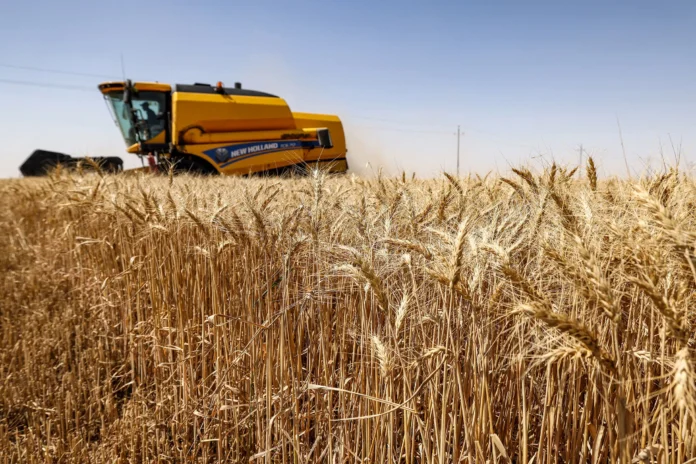Iraq is expecting a strong wheat production growth this year, with projected yields reaching six million tons. This increase could cost the Finance Ministry nearly five trillion dinars in total. However, limited rainfall and outdated irrigation methods may create challenges for farmers across the country.
About 30% of wheat cultivation occurs outside Iraq’s formal agricultural planning. Only 40% of the cultivated land uses modern irrigation systems. Despite these limitations, 62% of the land designated for wheat farming has still been planted.
According to the Ministry of Trade, farmers have delivered over 1.3 million tons of wheat so far. In total, around 5.2 million dunams have been used for wheat cultivation this year across Iraq and the Kurdistan Region.
Walid Ghareeti, the head of Iraq’s Farmers Union, shared his optimistic forecast. He estimated that total wheat cultivation could reach six million dunams. Based on current field reports, wheat production may rise to seven million tons.
Farmers growing wheat under the government plan use regulated irrigation systems. They also hold official land ownership papers. In contrast, farms outside the plan rely on old methods and lack updated irrigation, which leads to water waste.
Ghareeti explained that 20% to 30% of wheat is grown on land outside the official farming strategy. This highlights the need for modernization and stronger planning across the sector.
Procurement prices depend on how the wheat is irrigated. Wheat using advanced irrigation receives 850,000 dinars per ton. Wheat grown with river water or within the farming plan is bought for 800,000 dinars per ton.
Government figures show a clear wheat production growth compared to last year. The increase reached over 23%, bringing total output to 5.2 million tons.
Nineveh Province ranked first, producing nearly 1.4 million tons. Salahaddin followed with over 850,000 tons harvested.
Each citizen receives nine kilograms of flour monthly. This flour is produced locally from Iraqi wheat. The country needs nearly five million tons of flour annually, which requires over six million tons of wheat.
With better land usage and rainfall, Iraq is on track for a third straight wheat production growth year.

